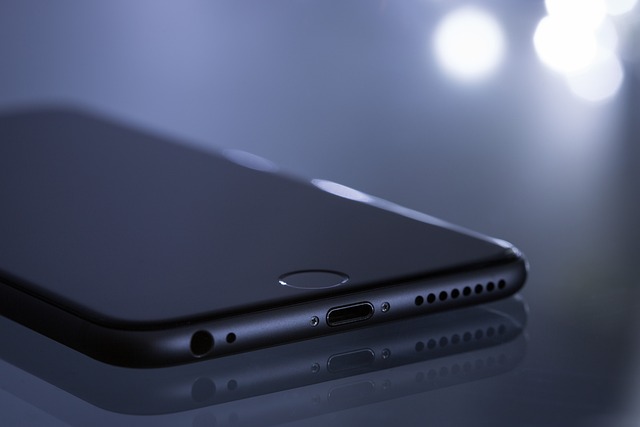iPhone users should be aware of their warranty options, particularly regarding iPhone battery replacement. Apple's standard limited warranty covers defects for one year from purchase, but does not include coverage for accidental damage or iPhone battery issues post-warranty. To continue enjoying comprehensive protection, consider enrolling in AppleCare+. This plan offers up to two repairs per component annually, including the iPhone battery, at a discounted fee. It's especially beneficial if you frequently use your phone and face the likelihood of accidental damage or battery degradation. AppleCare+ also provides coverage for up to two incidents of unintended damage each year without incurring high additional costs.
To maintain your iPhone's performance, monitor its battery health with Apple's 'Battery Health' feature, which advises if a replacement might be necessary if the battery capacity falls below 80%. Regularly checking your device's battery status can prevent unexpected downtime and ensure optimal functionality. When considering warranty protection, prioritize plans that cover accidental damage and iPhone battery replacements, like AppleCare+, to protect your investment effectively and manage repair costs associated with battery service. By understanding the coverage details of these plans, you can make informed decisions tailored to your usage patterns and risk factors.
When it comes to safeguarding your iPhone investment, deciphering warranty options is a pivotal decision. This article navigates through the nuances of warranty coverage for iPhone replacements, focusing on the importance of understanding your plan and the implications of replacing an iPhone battery. We’ll contrast AppleCare+ with standard warranties, delve into the reliability of third-party providers, and parse extended warranty terms to ensure you make a well-informed choice. With these insights, keeping your device in optimal condition becomes straightforward and cost-effective.
- Understanding Your iPhone Warranty Coverage
- Assessing the Need to Replace Your iPhone Battery
- AppleCare+ vs. Standard Warranty: What's the Difference?
- Exploring Third-Party Warranty Providers for iPhone Replacements
- Deciphering Extended Warranty Terms and Conditions
- Tips for Making an Informed Warranty Choice for Your iPhone Replacement
Understanding Your iPhone Warranty Coverage

When it comes to safeguarding your iPhone investment, understanding your warranty coverage is crucial. Apple offers a limited warranty that covers any defects in materials or workmanship when you first purchase your device. This standard warranty typically lasts for one year from the date of original purchase. However, for extended protection beyond this period, considering an AppleCare+ plan can be beneficial. With AppleCare+, you can get up to two repairs for each component covered, including the iPhone battery, for a low service fee. This is particularly advantageous if your device is prone to battery degradation or other issues that may arise as you use it over time. The plan covers accidental damage due to handling for two incidents per year, which means you can replace an iphone battery or fix other hardware damages without incurring high out-of-pocket expenses. It’s important to familiarize yourself with the specific terms and conditions of your warranty, as well as what is and isn’t covered under AppleCare+. This knowledge will help you make informed decisions and ensure that your iPhone operates at its best for years to come. Understanding your coverage also means knowing when an iphone battery replacement might be necessary or when accidental damage protection can save you from costly repairs. With the right warranty plan, you can enjoy peace of mind knowing that expert service is just a call or visit away.
Assessing the Need to Replace Your iPhone Battery

When your iPhone’s performance dips or it fails to hold a charge as long as it used to, it might be time to consider replacing the battery. Regular battery maintenance is pivotal for maintaining optimal device functionality. Over time, lithium-ion batteries in smartphones like the iPhone degrade naturally due to a combination of factors such as chemical aging and the number of charge cycles. This degradation can lead to a noticeable decrease in battery life, with the phone dying more quickly or not holding a charge as well as it once did. Assessing the health of your iPhone’s battery is crucial for ensuring that your device remains reliable and efficient. Apple provides a feature within the Settings app called ‘Battery Health,’ which can inform you about the maximum capacity of your iPhone’s battery and recommend whether a replacement is advisable. Typically, if your battery’s capacity is significantly below 80%, it might be worth replacing it to restore the phone’s performance. Additionally, some users may prioritize battery longevity over other factors when choosing warranty options for iPhone replacements, especially if they frequently use their device for long periods or travel where charging opportunities might be limited. Understanding the signs that indicate a diminishing battery and knowing your warranty coverage can save you from unexpected downtime and help preserve the overall user experience of your iPhone.
AppleCare+ vs. Standard Warranty: What's the Difference?

When contemplating the protection of your iPhone investment, understanding the nuances between AppleCare+ and the standard warranty is paramount. The standard warranty provided by Apple covers manufacturing defects for one year from the purchase date. If your device falls prey to such a defect, Apple will repair or replace it at no additional charge. However, this coverage does not extend to damage resulting from accidents like drops or liquid exposure, which are common scenarios where an iPhone battery might need to be replaced.
In contrast, AppleCare+ offers an extended warranty period of two years from the purchase date for hardware issues, including accidental damage. With this plan, you can have your iPhone battery replaced at a lower service fee compared to out-of-warranty rates. AppleCare+ also provides two incidents of accidental damage coverage, meaning you can replace your iphone battery once every 12 months for a set fee, without the added expense of a full device replacement. This comprehensive plan offers peace of mind, allowing you to use your iPhone confidently, knowing that unexpected events won’t lead to costly repairs or replacements. Weighing the costs and benefits of AppleCare+ versus the standard warranty can save you money in the long run, especially if you’re prone to mishaps or live in an environment where wear and tear on your iPhone battery is a concern.
Exploring Third-Party Warranty Providers for iPhone Replacements

Deciphering Extended Warranty Terms and Conditions

Tips for Making an Informed Warranty Choice for Your iPhone Replacement

When considering a warranty for your iPhone replacement, especially if you’re looking to replace an iPhone battery, it’s crucial to evaluate the scope and terms of coverage offered by different plans. Opting for an AppleCare+ plan can extend your protection beyond the standard one-year warranty, providing up to two incidents of accidental damage repair or replacement, including for an iPhone battery replacement, for a low service fee. When selecting a warranty, ensure it covers both hardware malfunctions and accidental damage, as these are common concerns for iPhone users. Additionally, verify that the warranty you choose includes batteries; since lithium-ion batteries can degrade over time, this coverage is particularly valuable. Always review the fine print to understand what’s excluded from coverage, such as cosmetic damage or issues caused by unauthorized repairs. By carefully comparing different warranty options, you can make an informed decision that aligns with your usage patterns and budget, ensuring peace of mind for your iPhone investment, especially when considering a replace iPhone battery service.
When considering an iPhone replacement, it’s crucial to evaluate your warranty options carefully. This article has navigated through the intricacies of iPhone warranty coverage, highlighted the importance of assessing whether you need to replace your iPhone battery, and contrasted the benefits of AppleCare+ with standard warranties. Additionally, we’ve explored the avenues provided by third-party warranty providers and demystified extended warranty terms and conditions. With these insights, you are now equipped to make an informed decision that aligns with your needs and budget when replacing your iPhone battery or any other component. Remember to carefully read and understand the details of each warranty option to ensure you select the most appropriate coverage for your device.
